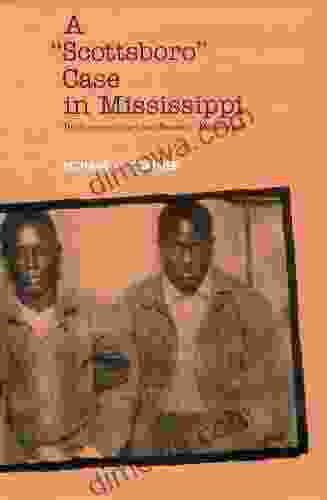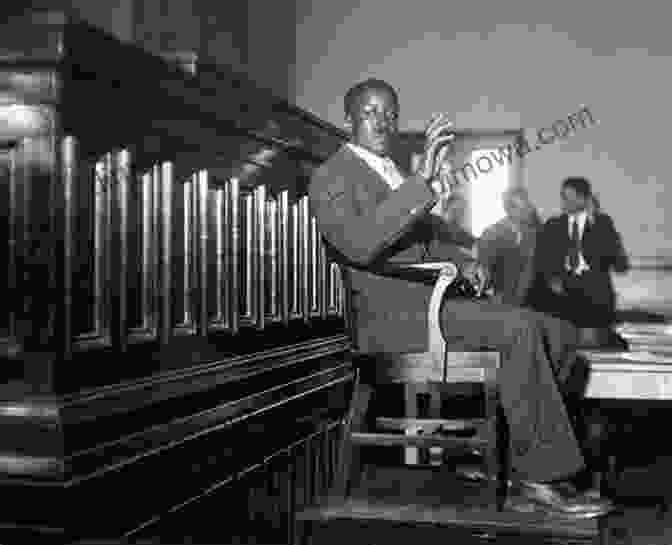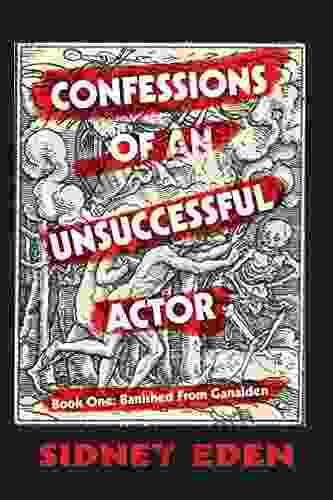The Scottsboro Case in Mississippi: A Tragic Tale of Injustice and Racial Prejudice

In the annals of American history, the Scottsboro Case stands as a chilling reminder of the pervasive racial prejudice and injustice that plagued the nation during the Jim Crow era. This landmark case, which unfolded in Mississippi during the Great Depression, involved the wrongful conviction of nine African American teenagers, known as the Scottsboro Boys, on charges of raping two white women. The events surrounding the case and its aftermath exposed the deep-seated racism within the Southern justice system and ignited a nationwide campaign for civil rights.
5 out of 5
| Language | : | English |
| File size | : | 667 KB |
| Text-to-Speech | : | Enabled |
| Screen Reader | : | Supported |
| Enhanced typesetting | : | Enabled |
| Word Wise | : | Enabled |
| Print length | : | 189 pages |
The Scottsboro Case began on March 25, 1931, when a group of black and white teenagers boarded a freight train traveling through Alabama. A fight broke out between the two groups, and several of the black teenagers were thrown off the train. They were later arrested and charged with assault and robbery. While in custody, the teenagers were falsely accused of raping two white women who had been riding on the same train. The accusations were based solely on the testimony of the women, despite the fact that there was no physical evidence to support their claims.
The Trial and Convictions
The trial of the Scottsboro Boys was swift and unjust. The all-white jury convicted all nine defendants of rape, and they were sentenced to death. The convictions were based solely on the testimony of the two white women, who claimed that they had been raped by the teenagers. The defense presented no witnesses, and the judge refused to allow the defendants to testify on their own behalf.
The convictions of the Scottsboro Boys sparked outrage across the nation. The NAACP immediately took up the case and appealed the convictions to the Alabama Supreme Court. The court upheld the convictions, and the case was eventually appealed to the U.S. Supreme Court.
The Supreme Court and Due Process
In 1932, the U.S. Supreme Court ruled in Powell v. Alabama that the Scottsboro Boys had been denied their right to due process of law. The Court found that the all-white jury had been selected in a discriminatory manner, and that the defendants had not been provided with adequate legal representation. The Court Free Downloaded a new trial for the defendants.
The second trial of the Scottsboro Boys was held in Decatur, Alabama, in 1933. This time, the jury was composed of both black and white jurors. The jury found the defendants guilty of rape, but they recommended mercy. The judge sentenced the defendants to life in prison.
The Scottsboro Boys and the Civil Rights Movement
The Scottsboro Case became a rallying cry for the civil rights movement. The case exposed the deep-seated racism within the Southern justice system, and it helped to galvanize support for the fight for equal rights for African Americans. The Scottsboro Boys spent many years in prison, but they were eventually released on parole. They continued to fight for justice and equality until their deaths.
The Scottsboro Case remains a powerful reminder of the struggle for civil rights in America. It is a story of injustice, prejudice, and triumph. The case continues to inspire people around the world to fight for justice and equality for all.
5 out of 5
| Language | : | English |
| File size | : | 667 KB |
| Text-to-Speech | : | Enabled |
| Screen Reader | : | Supported |
| Enhanced typesetting | : | Enabled |
| Word Wise | : | Enabled |
| Print length | : | 189 pages |
Do you want to contribute by writing guest posts on this blog?
Please contact us and send us a resume of previous articles that you have written.
 Book
Book Novel
Novel Page
Page Chapter
Chapter Text
Text Story
Story Genre
Genre Reader
Reader Library
Library Paperback
Paperback E-book
E-book Magazine
Magazine Newspaper
Newspaper Paragraph
Paragraph Sentence
Sentence Bookmark
Bookmark Shelf
Shelf Glossary
Glossary Bibliography
Bibliography Foreword
Foreword Preface
Preface Synopsis
Synopsis Annotation
Annotation Footnote
Footnote Manuscript
Manuscript Scroll
Scroll Codex
Codex Tome
Tome Bestseller
Bestseller Classics
Classics Library card
Library card Narrative
Narrative Biography
Biography Autobiography
Autobiography Memoir
Memoir Reference
Reference Encyclopedia
Encyclopedia Stephanie Garber
Stephanie Garber Barbara Riedel
Barbara Riedel Anne Marie Meyer
Anne Marie Meyer Micol Ostow
Micol Ostow Mircea S Rogalski
Mircea S Rogalski Susanne Gervay
Susanne Gervay Morgan Rice
Morgan Rice Vincent Tuckwood
Vincent Tuckwood Amy Bartelloni
Amy Bartelloni Tracy L Pellett
Tracy L Pellett Milos Jenicek
Milos Jenicek Suzanne Alyssa Andrew
Suzanne Alyssa Andrew Susan Apps Bodilly
Susan Apps Bodilly William King
William King James Lawless
James Lawless Stephanie T Hoppe
Stephanie T Hoppe Steven Haines
Steven Haines Warwick Tucker
Warwick Tucker Simon Beecroft
Simon Beecroft Trish Taylor
Trish Taylor
Light bulbAdvertise smarter! Our strategic ad space ensures maximum exposure. Reserve your spot today!

 Gerald ParkerMathematical Analysis II Universitext by Zorich: A Comprehensive Guide to...
Gerald ParkerMathematical Analysis II Universitext by Zorich: A Comprehensive Guide to...
 Edgar Allan PoeThe Duel That Shocked a Nation: The True Story of Alexander Hamilton and...
Edgar Allan PoeThe Duel That Shocked a Nation: The True Story of Alexander Hamilton and...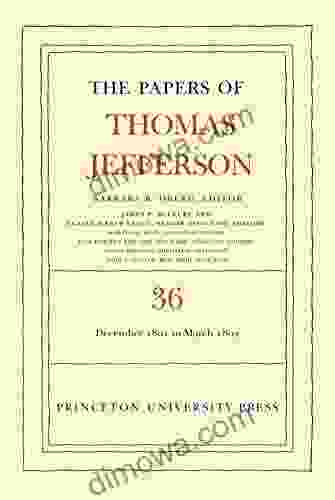
 Jeremy MitchellUnveiling the Legacy of a Founding Father: The Papers of Thomas Jefferson,...
Jeremy MitchellUnveiling the Legacy of a Founding Father: The Papers of Thomas Jefferson,... Derrick HughesFollow ·10.2k
Derrick HughesFollow ·10.2k Kyle PowellFollow ·3.7k
Kyle PowellFollow ·3.7k Diego BlairFollow ·17.8k
Diego BlairFollow ·17.8k Jonathan HayesFollow ·18.4k
Jonathan HayesFollow ·18.4k Trevor BellFollow ·3.3k
Trevor BellFollow ·3.3k Curtis StewartFollow ·4.4k
Curtis StewartFollow ·4.4k Lawrence BellFollow ·9.5k
Lawrence BellFollow ·9.5k W.B. YeatsFollow ·17.6k
W.B. YeatsFollow ·17.6k

 F. Scott Fitzgerald
F. Scott FitzgeraldLove Me Better, Love Me Right: A Journey of...
Unveiling the Profound Power of Emotional...

 Eddie Powell
Eddie PowellHow To Make Your Muzzleloader Most Effective And Keep It...
In the realm of firearms, muzzleloaders hold...

 Andy Hayes
Andy HayesPrepare Mentally, Physically, and Emotionally for the...
Embark on a Transformative Odyssey to...
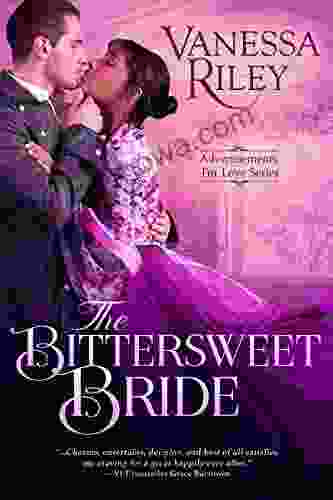
 Oliver Foster
Oliver FosterThe Bittersweet Bride: Advertisements for Love
A Poignant...
5 out of 5
| Language | : | English |
| File size | : | 667 KB |
| Text-to-Speech | : | Enabled |
| Screen Reader | : | Supported |
| Enhanced typesetting | : | Enabled |
| Word Wise | : | Enabled |
| Print length | : | 189 pages |


